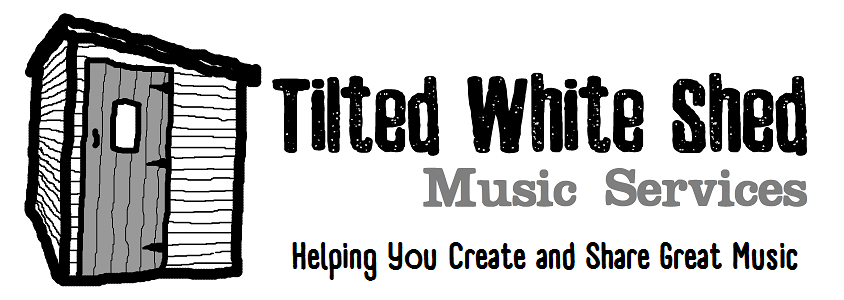Over the years, I have entered my songs in many different songwriting competitions. Local and Regional competitions, National and International competitions, I’ve tried them all, with some thrilling results:
- An international song competition win – Mike Pinder’s SONGWARS – funded the recording of my third full-length album, along with some handsome prizes.
- A regional song competition win – The Great Lakes Song Contest – resulted in live performance and radio interview opportunities, and an introduction to many new fans and musical peers. Oh, and more great prizes for my studio.
- A recent contest – the 2019 UK Songwriting Contest – saw four of my songs reach the short lists, with one reaching the semi-final round and another winning the Adult Contemporary category.
- Many other song contest wins have helped my reputation and rewarded me with cash and non-monetary prizes.
Note, of course, that I’ve had just as many disappointing results:
- An international song competition win – I won’t mention the name – didn’t amount to much, since the contest organizers disappeared after announcing winners, but before handing out prizes (and of course after accepting entry fees from all participants).
- Many times I’ve landed just outside of the winners’ circle.
- Many times I’ve landed further outside of the winners’ circle (let’s call this the circle of obscurity).
- Many times I’ve seen competitions where I didn’t have the budget (or the intention) to buy into the winners’ circle (what? Isn’t it about the quality of the music?).
There are some truly fabulous song competitions out there, alongside some truly worthless ones. Whether it’s a competition promising rewards, but really building an email list for future solicitation (artists are suckers for a stroke of their ego), or simply a competition run to generate revenues without offering anything of value to the entrants, “Caveat Emptor” – “buyer beware” – applies to song competitions just as much as it does everywhere else.
For now, let’s ignore that you’ll encounter a competition or two that are run by, let’s face it, crooks. Let’s look at other reasons for a love/hate relationship with song competitions.
Five Reasons to Hate Song Competitions
1. They are judged by people, subjectively
Song competitions are judged by people – sometimes by truly qualified music industry professionals, other times by whomever is available – and the top songs are chosen based on opinion. If my song is heard by a judge who isn’t qualified to judge my song, or let’s face it, by someone who is having a bad day, that affects my chances for success.
2. It hurts to be one of the majority of entrants who are not chosen to win the competition
It’s in the song competition’s best interest to get lots and lots of songs entered, because most competitions are run for-profit. More entries means more “losers”, and it’s disheartening to lose.
3. It’s impossible to judge a song fairly
Even if the judges are experts in the music industry, we’re talking about judging art, and countless variables affect our ability to compare two works of art and choose a “winner”.
4. I’m up against famous, professional songwriters
It’s not fair that my song has to compete with songs written by the best songwriters out there, sometimes songs that have already been heard by millions of people.
5. A song competition is a game, and probably won’t directly help my career, even if I win the competition
Will my career take off after winning a song competition? If you read the marketing of some competitions, they claim to have launched careers, but those songwriters were already building careers on their own.
Five Reasons to Love Song Competitions
1. They are judged by people, subjectively
Our fans are people, and what it takes to build a fan base is exactly what it takes to win song competitions: persistence, dedication, awareness and a willingness to learn and grow. Barring any suspicious or despicable behaviour by the competition team, they’re offering a chance to road-test your songs against some (hopefully) educated listeners.
2. It hurts to be one of the majority of entrants who are not chosen to win the competition
Being an artist requires more rejection than acceptance. Get to work on building a collection of rejection. Use it as a challenge to find a way to do better next time. Listen to the winning songs and consider what separates them from your songs.
3. It’s impossible to judge a song fairly
While it’s true that it’s disappointing to be unsuccessful in a song competition, be confident in the songs you are creating. Pay attention to opportunities to improve as a songwriter, and know that you might find a market for your music despite the competition results. Just remain realistic!
4. I’m up against famous, professional songwriters
Nobody said this was going to be easy. But think about it this way – in the market for listeners, you are always up against famous, professional songwriters. If you care about writing the best songs you can write, and about always improving your skills, there’s no better way than to get out there in the same market as your songwriting peers, competing for the attention of fans, radio programmers, bloggers, music supervisors, etc.
5. A song competition is a game, and probably won’t directly help my career, even if I win the competition
A positive song competition result will help support your growing reputation as a credible songwriter, while a negative song competition result will not hurt your reputation, since nobody will know that you weren’t a winner. And if you win a competition, you will likely find yourself rewarded in real ways – prizes, promotional opportunities, educational opportunities, etc. Don’t expect a single song competition win to change your life, but use it to fuel your development.
Suggestions For Song Competition Success
- Celebrate your victories, small and large, and look for opportunities in your non-victories.
- Know what you’re getting for your entry fee, assuming that you don’t win any prizes. Look for song competitions which offer more than a simple checklist of feedback. Most song competitions are for-profit ventures, and many streamline the process by providing limited feedback which doesn’t directly help you write better songs, but some offer legitimate feedback from real professionals.
- Consider starting with smaller competitions – perhaps regional rather than international – in which you can get more personal attention and will be competing against fewer songs and fewer songwriters (the “smaller pond”).
- Listen to all the winning songs, and consider what qualities pushed those songs to the top of the competition. Be aware of the songwriting market, and of what can make your songs more attractive to listeners and artists. It might be helpful to discuss the merits of the winning songs with other serious songwriters.
- Remain open to developing your craft, and remain aware of the ways a song might touch a listener.
- DON’T TAKE IT PERSONALLY. I would be failing you if I said, “don’t compare yourself to others” to make you feel better. By all means, compare your songs to others, but keep it real and understand that every creator spends a lifetime developing their craft. We’re all on the same learning curve, but we’re not all at the same point on the curve on a given day. You will improve as a songwriter if you dedicate yourself.
If you like what you read above, maybe you'd like to work with Allister at Tilted White Shed? Reach out through the Contact Us page.


